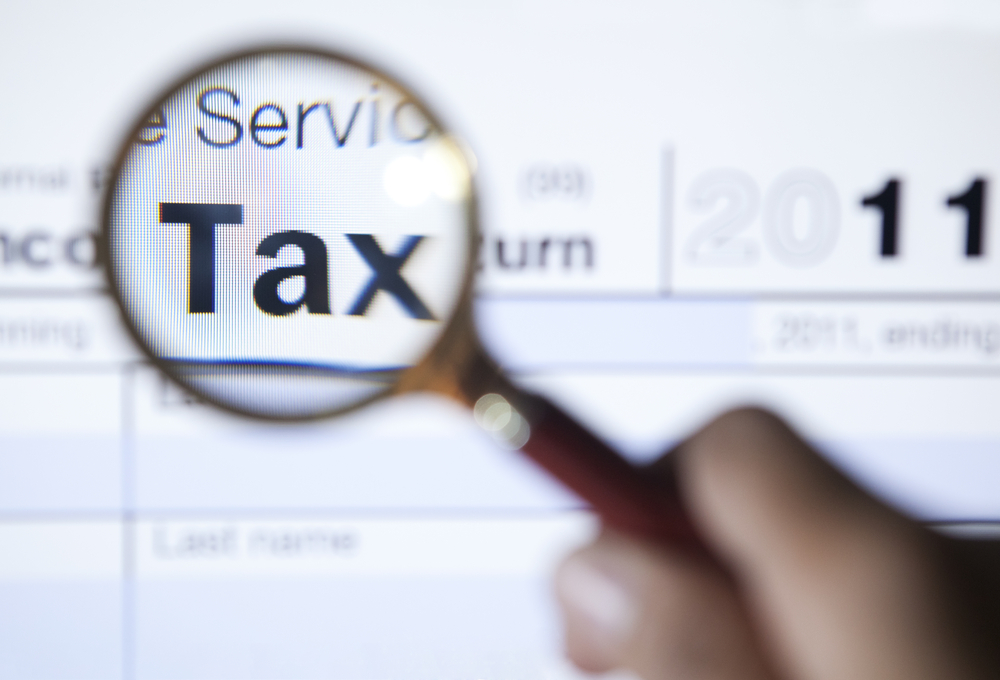
Will Taxes Go Down in 2023?
The new year is here and everyone is putting together their resolutions! Near the end of 2022, the Internal Revenue Service (IRS) released the updated tax information for 2023. The tax inflation adjustments won’t affect your 2022 filing this April, but it may save you money on your tax returns for 2023! Here are the details.
Every year, the IRS adjusts around 60 different tax provisions for inflation to prevent what’s known as ‘bracket creep’ which is when inflation pushes people into higher tax brackets or reduces the value of credits and deductions. In 2022, the inflation rate was around 7% across the board — which is extremely high. To counteract that, the IRS has made changes to standard deductions, tax brackets, and the earned income tax credit as well as some other tax policies.
Standard Deductions Increased
The standard deduction on your tax returns refers to a non-itemized dollar amount that reduces the income on which you’re taxed. You can take a standard deduction unless you itemize your deductions or if you have special circumstances that make you ineligible.
In 2023 (for taxes filed in 2024), the standard deduction will increase to:
- $13,850 for single filers (which is an additional $900)
- $20,800 for head of household filers (which is an additional $1,400)
- $27,700 for married couples filing jointly (which is an additional $1,800)
What this means is that you can deduct that amount from your income so that you do not have to pay taxes on it. This can keep you from slipping into the next tax bracket (and therefore increasing your tax rate). The increase may also reduce the incentive to itemize your deductions when you file taxes which can save you hours of paperwork. A Certified Public Accountant (CPA) can help you determine the best deduction method for your specific circumstances.
Tax Bracket Changes
Tax brackets simply refer to the different rates at which certain income levels are taxed. While the rates themselves are not changing in 2023, the income which qualifies you for a higher tax bracket is.
| Tax Rate | Single Filers 2023 (new) | Single Filers 2022 (old) | Married Filing Jointly 2023 (new) | Married Filing Jointly 2022 (old) | Head of Household 2023 (new) | Head of Household 2022 (old) |
| 10% | Under $11,000 | Under $10,275 | Under $22,000 | Under $20,550 | Under $15,700 | Under $14,650 |
| 12% | $11,000+ | $10,275+ | $22,000+ | $20,550+ | $15,700+ | $14,650+ |
| 22% | $44,725+ | $41,775+ | $89,450+ | $83,550+ | $59,850+ | $55,900+ |
| 24% | $95,385+ | $89,075+ | $190,750+ | $178,150+ | $95,350+ | $89,050+ |
| 32% | $182,100+ | $170,050+ | $364,200+ | $340,100+ | $182,100+ | $170,050+ |
| 35% | $231,250+ | $215,950+ | $462,500+ | $431,900+ | $231,250+ | $215,950+ |
| 37% | $578,125+ | $539,900+ | $693,750+ | $647,850+ | $578,100+ | $539,900+ |
Because the income that qualifies you for a certain tax rate has increased by around 7.1% for each bracket and filing status, you can make more money but still owe less taxes in the 2023 tax year.
To further explain, your income is taxed at the amount in each bracket up to the top dollar you earn. So if you make $50,000 in 2023, your first $11,000 will be taxed at a rate of 10%, the next $33,725 will be taxed at 12% because it’s additional income over the first $11,000, and your last $5,275 will be taxed at 22% because it’s additional income over $44,725. This can save you money because more of your income is taxed at lower rates than it was in 2022. (Keep in mind this example doesn’t account for possible credits and deductions and other things that can lower your taxable income.)
The new income brackets automatically apply when you do your taxes so you won’t have to take any special steps to get the benefits. If your pay has kept up with inflation, you probably won’t see much of a change on your taxes, but if your wages have fallen short of inflation rates or you’ve been straddling two tax brackets, you may save some money on taxes in 2023!
Earned Income Tax Credit Increased
The Earned Income Tax Credit (EITC) is a tax credit afforded to low and moderate income workers. Like the standard deduction, it reduces the amount of federal taxes you owe. You’re eligible whether you have children or not, as long as you earn money from a job, are a U.S. citizen or resident alien, have a social security number, and your investment income is under $11,000. This tax credit only applies to lower income families so be sure to contact a CPA to discuss whether this credit is applicable to your situation.
In 2023, the EITC amount is worth between $600 to $7,430, depending on how many children you have ($600 being 0, $7,430 being 3, with various amounts in between). This is up from what it was in 2022 when it was $560 to $6,935. If the EITC amount is more than what you owe in taxes, you can still claim it and get money back in your tax refund!
Specialty exclusions
In 2023, the IRS is also increasing specialty exclusions that can decrease the amount you owe. Some of these include:
- Exclusion for gifts increases from $16k to $17k
- Foreign earned income exclusion increases from $112k to $120k
- The maximum tax credit for qualified adoption expenses increases from $14,890 to $15,950
- The basic tax exclusion for inheritances increases from $12.06 million to $12.92 million.
There have also been some other changes to the tax rules for 2023 so you should contact a professional to learn about the changes that may apply to your circumstances. Meeting with a qualified CPA can help ensure you get the most money from your tax returns. CPAs have to stay up to date on all the tax laws and have extensive knowledge of the tax code. They can make tax law work for you, rather than against you.
Everyone has to pay taxes, but a professional CPA can make you aware of the various tax breaks that apply to your situation, save you money by using deductions and credits properly, and prevent you from getting in trouble with the IRS for improper filing. Contact our experienced CPA Paul Anderson if you’re looking for assistance this tax season.
No Comments
Sorry, the comment form is closed at this time.
